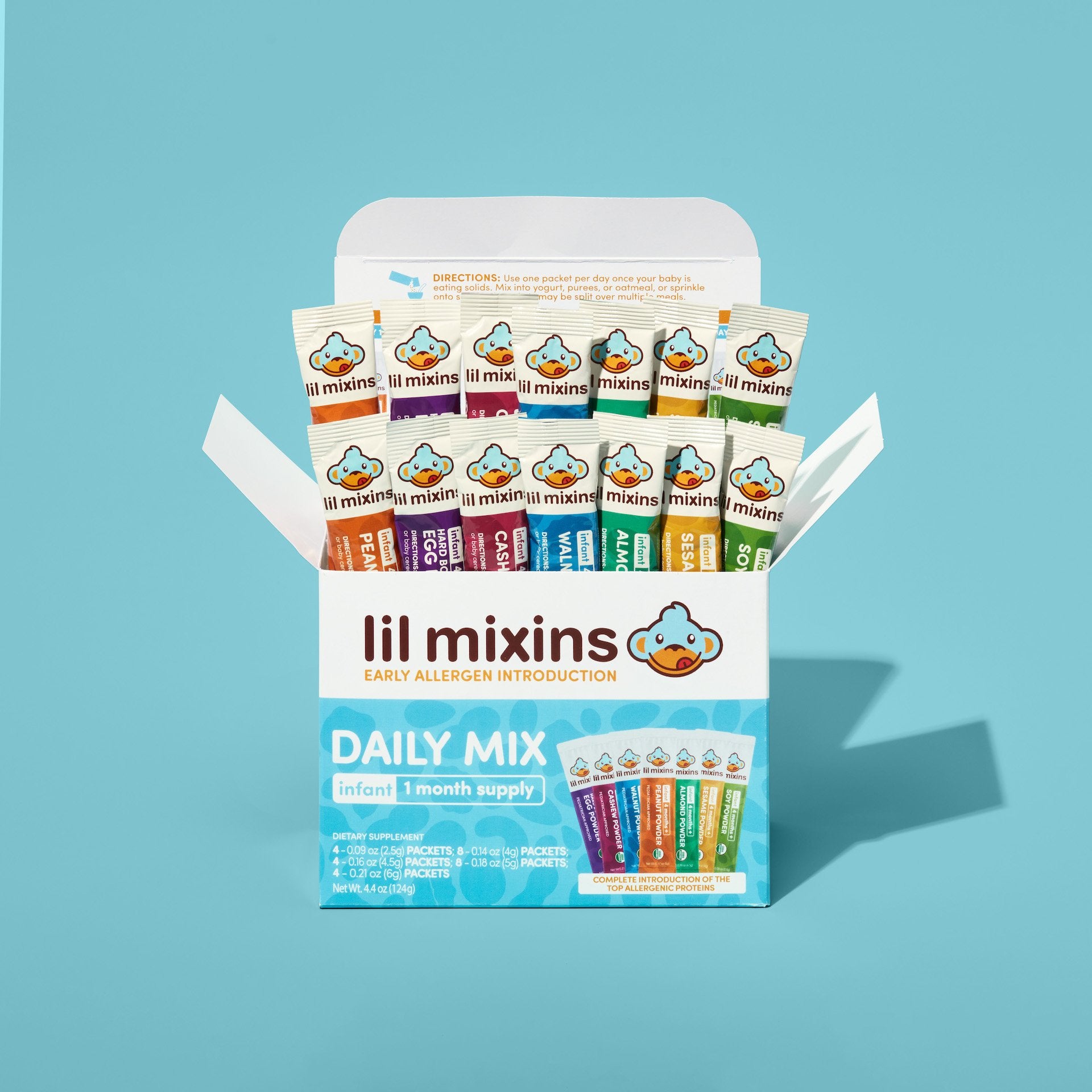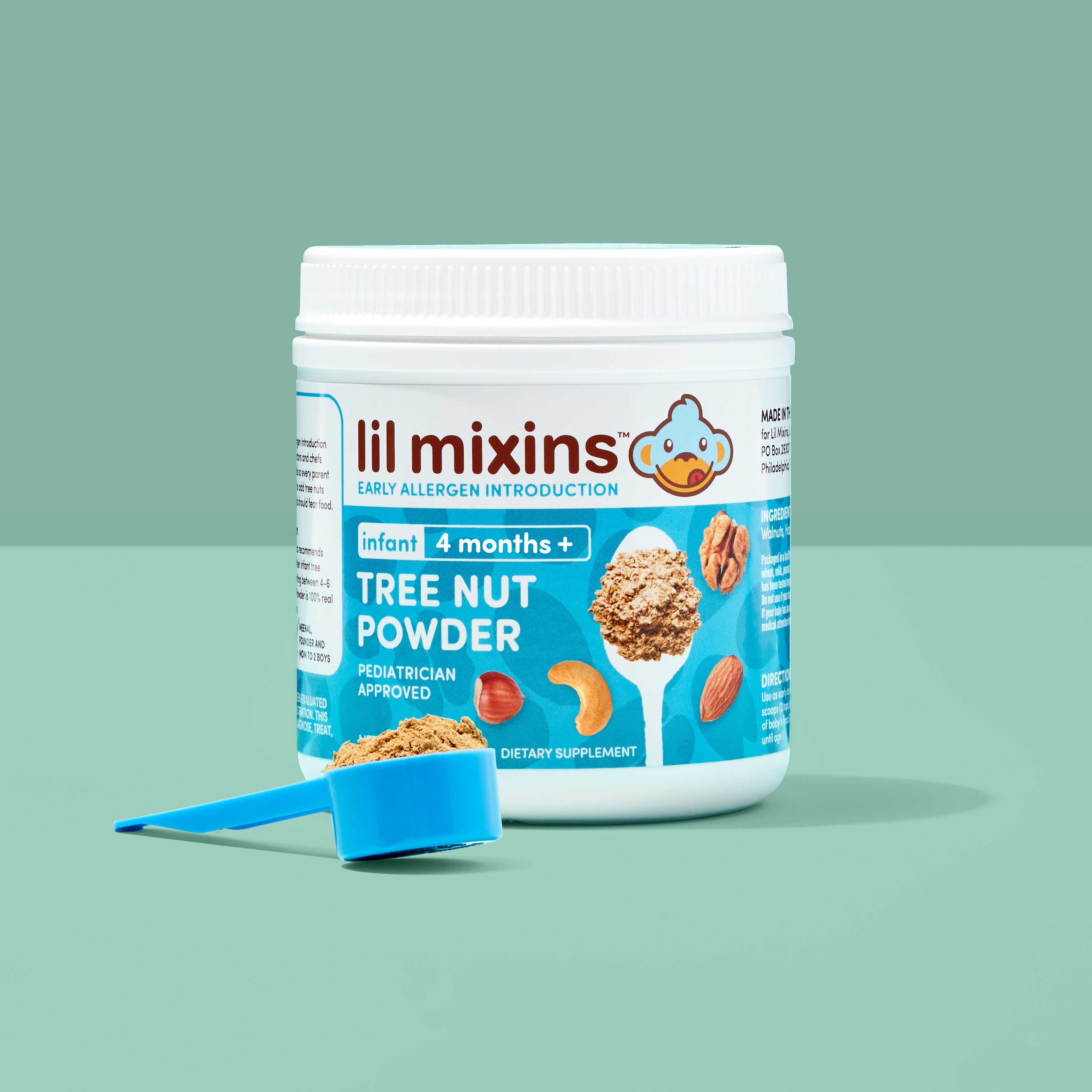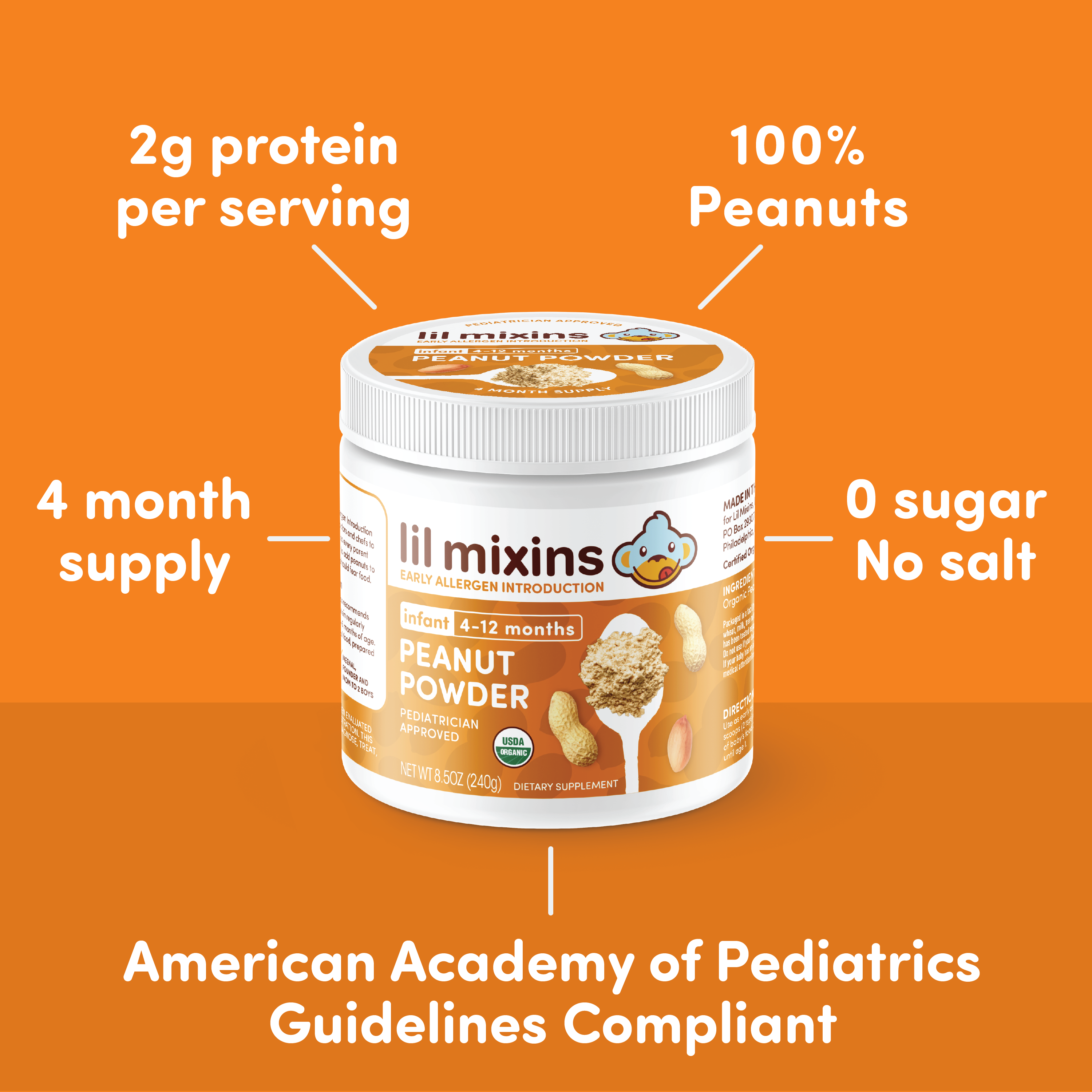Safe Ways to Feed Your Baby Nuts
The most difficult thing about advising parents to introduce nuts to their baby is that it’s actually more than 9 different foods. You need to train your baby’s stomach to tolerate the whole list - peanuts, almonds, walnuts, hazelnuts, cashews, brazil nuts, pistachios, pine nuts, and pecans!
There are three important rules to remember:
- Focus on the nuts that you keep in your house. Do you eat a lot of peanut butter? Protein bars with almonds? Maybe cashews in salads? Or live near a pecan farm? Babies are most likely to develop allergies if they are around foods that they are not eating. Start with those nuts.
- Some nuts have the superpower of helping the body tolerate multiple nuts. We made Lil Mixins Tree Nut Mixin with almonds, walnuts, hazelnuts, and cashew because studies have shown that eating those four can provide the training wheels for all tree nuts.
- Peanut is technically a legume (bean), so it needs special attention to be fed 2 to 3 times a week. This is why Lil Mixins makes a separate Peanut Powder to make sure your baby gets enough servings of peanuts.
- Make all nuts a part of a low sugar, diverse diet. Nuts should be fed in addition to high fiber vegetables, fruits with no added sugar, and whole grains to help your baby develop a healthy gut and immune system, without food allergies.
 When Is it Safe to Feed Your Baby Nuts?
When Is it Safe to Feed Your Baby Nuts?
You can begin feeding your baby nuts that are prepared safely as soon as they can tolerate solid foods. Over 99% of babies are considered low risk of developing a food allergy, and studies show that 6-10 months old is the critical window to train a baby’s immune system.
About 1% of babies with severe eczema, and/or other food allergies, are considered at higher risk of developing new food allergies. Parents of these babies may want to speak to their pediatrician first.
Even so, every study has shown that all babies can cut their risk of an allergy by 80% if they begin eating foods early and often.
If the nuts are prepared safely, babies can begin eating nuts as soon as they have tolerated one or two other solids like baby cereal, usually around 4-6 months old.
The key words are “prepared safely.” Whole nuts are an obvious choking hazard -- even for adults. Nut meals leave in the skins which get easily stuck in a baby’s throat, and nut butters are way too thick for babies to swallow.
The safest ways to feed your baby nuts when they are 4-10 months old are to thin nut butters with formula or breastmilk, or use Lil Mixins Peanut and Tree Nut Powders.
Based on everything we know about which children are at higher risk of having food allergies, it is becoming clear that all babies should eat as many proteins as possible, regularly, in infancy to train their stomachs to tolerate those foods.
Only babies with a developed allergy (less than 0.5% of babies) should avoid those nuts.

Shop Daily Mix One-Month Supply
How to Prepare Nuts Safely
Whole nuts and crushed nuts are a choking hazard for babies just getting used to solids. Do not try to chop nuts at home using a food processor. You may get to small pieces, but larger chunks will be hidden.
There are two safe ways you can feed a baby nuts:
-
Mix 2 scoops or 1 packet each of Lil Mixins Tree Nut and Peanut Powder into their food. It contains no added sugar, no salt.

- Thin 2 teaspoons of peanut / almond / cashew / walnut butter with warm breastmilk or formula. Allow the mixture to cool. Feed baby the nut soup or stir the soup into baby food.

Safety Tips
The first time you feed your baby any new food, do it at a time where you will be near your baby and able to monitor them for the next 2-4 hours. Allergic reactions usually occur within 2 hours of the meal, but it can be longer.
Never feed your baby the first serving of any food at night, or when they are away from you at daycare or a grandparents house.
There is no need to wait 3 days between new foods, but it is smart to introduce the common allergens — dairy, peanut, egg, tree nut, wheat — for the first time without mixing them together.




